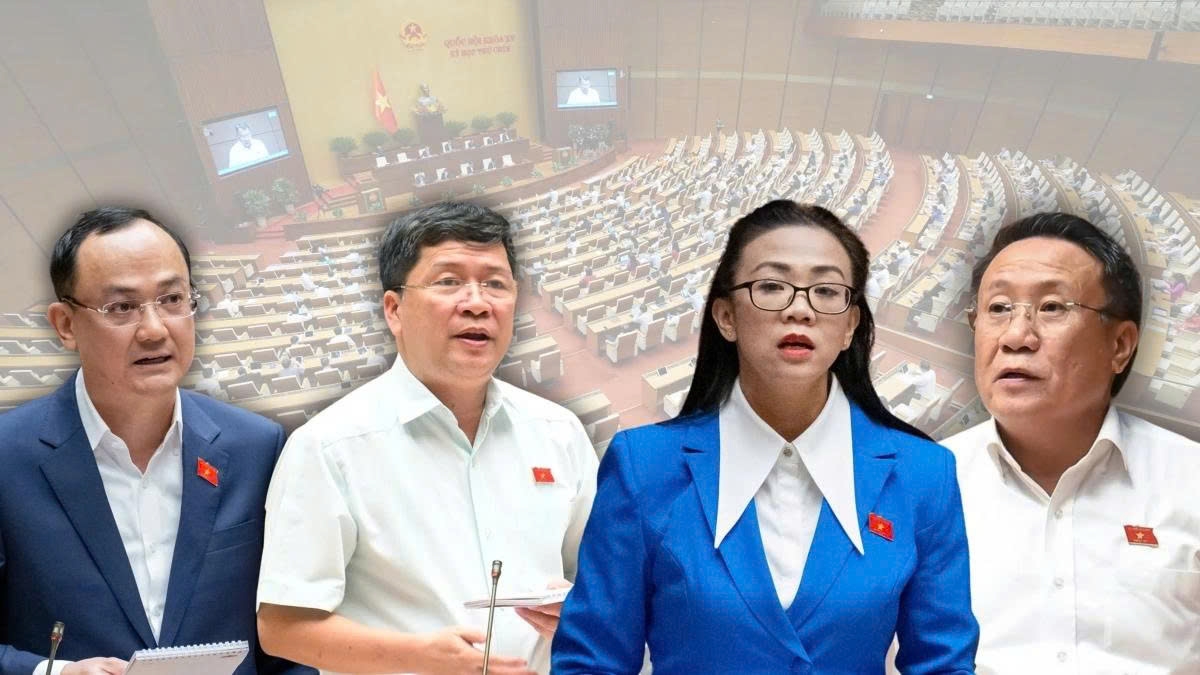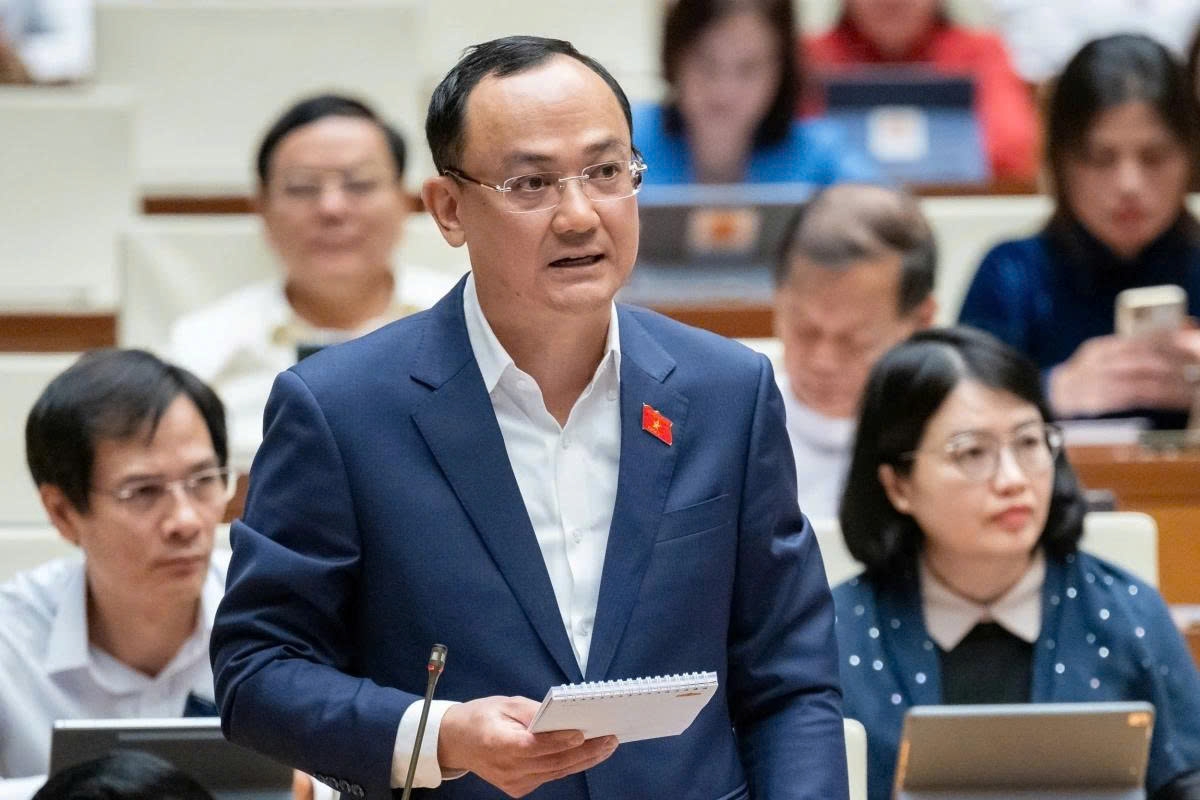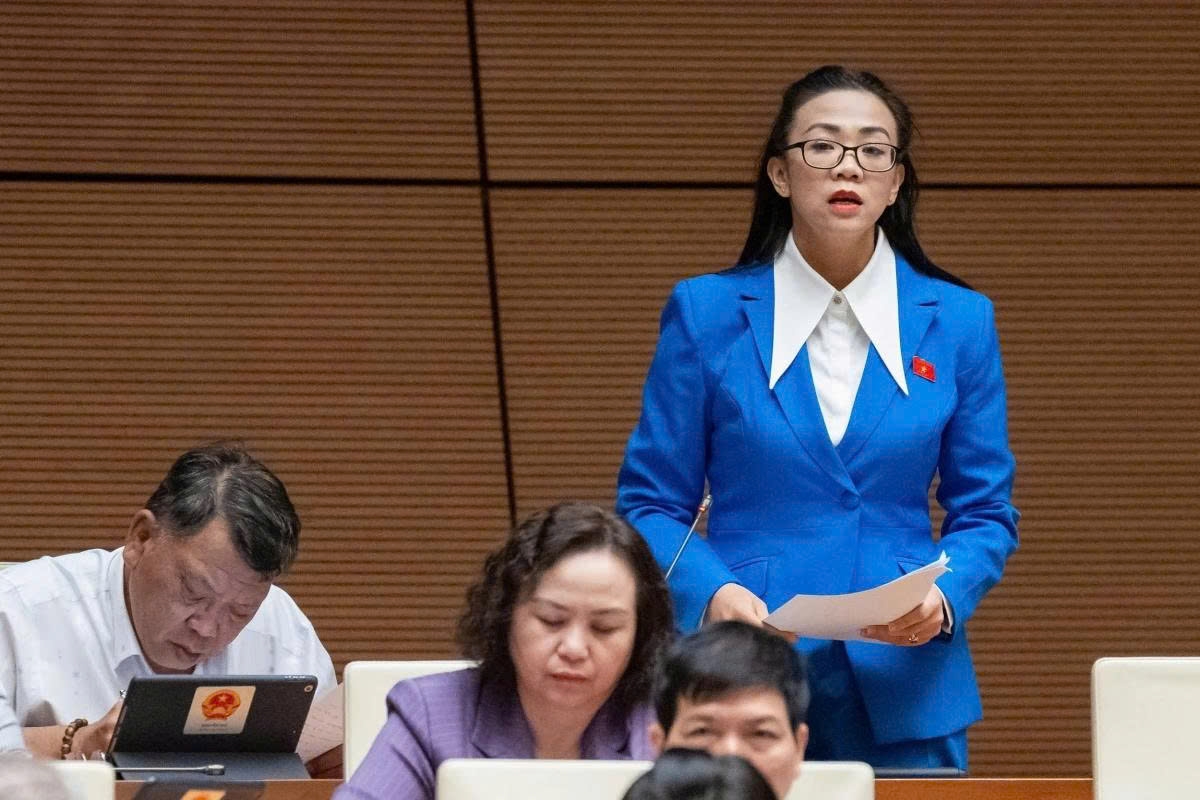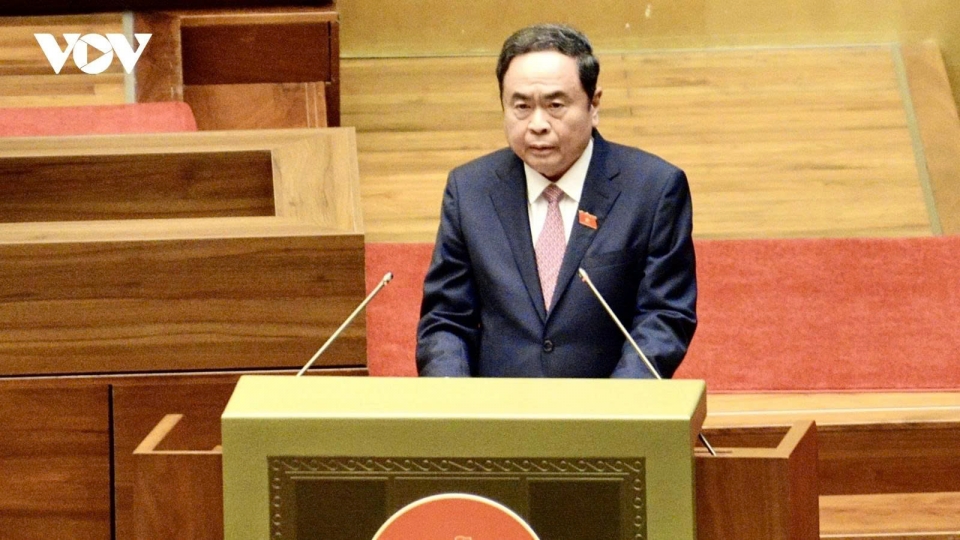Historic National Assembly session marks strategic turning point for Vietnam
VOV.VN - The ninth session of the 15th National Assembly, which concluded on June 27 after 35 days of intensive and efficient work, is widely regarded as a historic session marking a strategic turning point for the country in the new phase of development.

During the sitting, the National Assembly passed 34 laws and 34 resolutions, including a groundbreaking resolution to amend the 2013 Constitution, which received unanimous approval. In tandem, numerous other laws and resolutions were adopted, laying a solid legal foundation for the restructuring and streamlining of the two-tier local government system in Vietnam.
The gathering highlighted the National Assembly’s reform-minded spirit and strong commitment to swiftly institutionalising the Party’s major directives, with key developments including Constitutional amendments, administrative boundary mergers, and rreorganisation at the commune level, aimed at building a leaner, more efficient administrative apparatus.
The legislature also passed vital legislation in areas such as investment, bidding, digital technology industry, and local governance designed to implement major Party resolutions on science and technology, the private sector, deep international integration, and institutional reform.

Deputy Nguyen Ngoc Son of Hai Duong province emphasized that these legal reforms have addressed key institutional bottlenecks, enabling policies to be effectively translated into practice. This paves the way for economic growth to reach 8% in 2025, and for potential double-digit growth in the following years.
He welcomed the National Assembly’s passage of the amended Law on the Organisation of Local Government and the Law on the Promulgation of Legal Normative Documents to ensure proper allocation of authority in line with decentralization.
“The National Assembly decides what falls under its authority, and the Government decides what falls under its own. This reflects a notable shift in the legislative approach,” he stressed.
According to deputy Trinh Thi Tu Anh of Lam Dong province, the session was marked by high quality in both preparation and decision-making. Draft laws and resolutions underwent extensive review and public consultation, and the explanatory and appraisal reports were clear and transparent, giving lawmakers a comprehensive understanding of each issue.
Key documents, such as the Resolution on provincial mergers, Constitutional amendments, and the revised Law on the Organisation of Local Government, not only address urgent matters but also open up new development space, providing a robust legal framework for the next phase of national growth.

The female deputy noted that a key highlight of the session was the strong unity in the National Assembly on important and complex issues that require strategic vision. Although there were different opinions during discussions, the shared commitment to national interests resulted in firm and landmark decisions. This demonstrates the responsibility and maturity of a National Assembly that is proactive, bold, and responsive to voters’ expectations.
Beyond recognising these achievements, the delegate expressed high hopes for the new policies just passed, especially in realising the vision of a “lean, efficient, and effective” administrative system to help the country ‘take off’ in the new era.
“I look forward to a significant shift from a management-focused approach to a service-oriented mindset within the state administration,” stressed deputy Tu Anh.
Alongside a shift in mindset, the application of information technology and digital transformation are identified as key factors for operating a streamlined government apparatus. Automating processes, reducing administrative procedures, and enhancing transparency and work efficiency are essential requirements. As a result, an effective e-government and digital government will soon be operational, bringing convenience to citizens and businesses.
“We greatly appreciate the many comments made from group discussions to the plenary session. All contributions were responsible and thorough, and reflected the voices, concerns, aspirations, and daily realities of the people,” said deputy Ha Sy Dong of Quang Tri province.
In his opinion, following the session there is a significant workload ahead with three immediate priorities to implement the resolutions. First, it is crucial to enhance communication with citizens, businesses, and the international community about the approved policies and frameworks to build trust in the reform process.
Second, there must be close supervision of the implementation, with timely adjustments to address any issues, making the legal system more accessible, clear, and transparent. And third, a thorough review of public agencies’ operations is needed to prevent breakdowns in communication and ensure that the resolutions are effectively put into practice.
“We must avoid a situation where resolutions are in place, mechanisms are clear, but those responsible for enforcement hesitate or lack sufficient legal knowledge, leading to delays and obstacles,” stated the deputy.
The ninth session is seen as one of the most historic in Vietnam’s National Assembly history, not only because of its unprecedented workload but also due to the scope and impact of its decisions. With deputies working through weekends and agencies continuously updating urgent issues, the session embodied a truly action-oriented legislature, committed to national progress.





